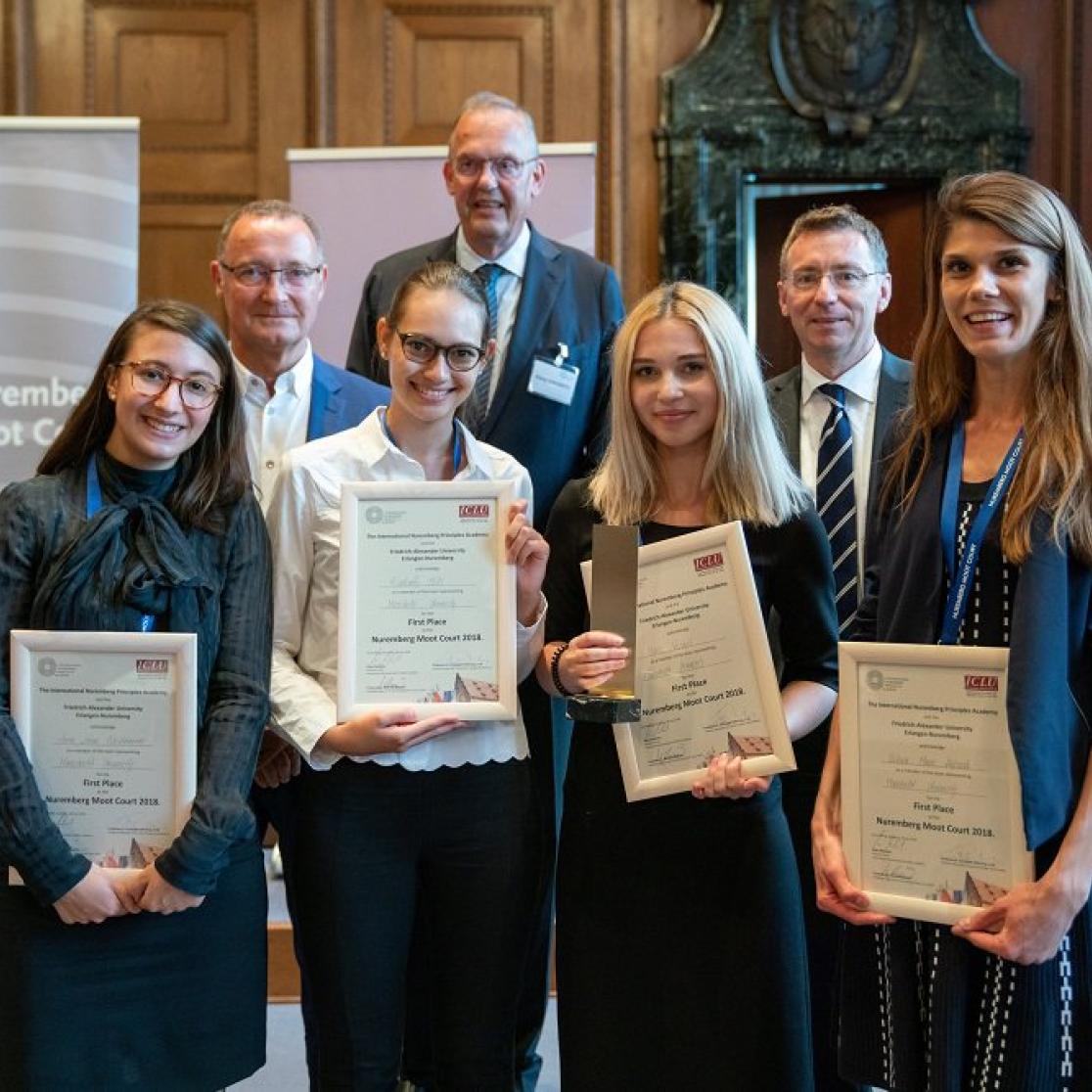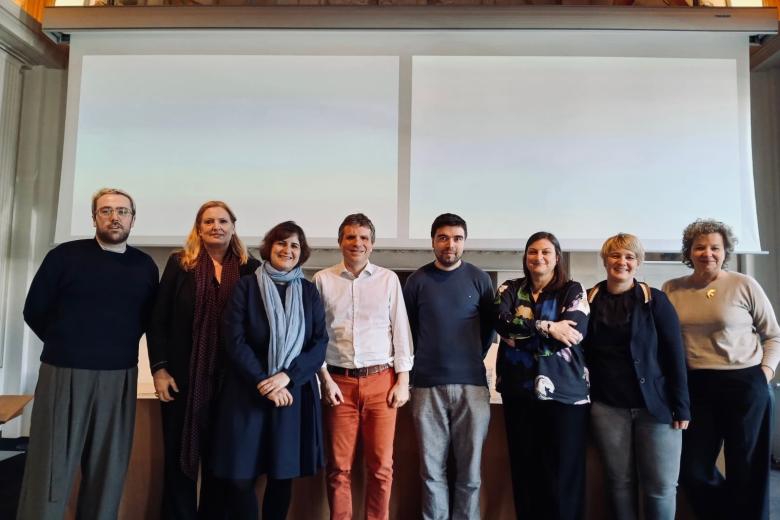Maastricht wins Nuremberg Moot Court on International Criminal Law 2018
Maastricht University’s team won the Nuremberg Moot Court on International Criminal Law, which was held from 25 to 28 July. Student teams from 45 different countries competed against each other, representing the prosecution or defence in a fictitious case. The competition was largely held in Courtroom 600 of the Nuremberg Palace of Justice, where more than 70 years ago, the main German war criminals were judged at the Nuremberg Trials.
The team members and their march to the final
Maastricht’s team consisted of master students Kimberley Mills, Anna Lena Neidmann and Marie Vesayt, as well as bachelor student Victoria Haeberle. After some ups and downs during the preliminary rounds, where they had won once (against a team from Russia) and lost once (against a team from Iran), they were able to march through the knock-out rounds (competing against teams from Germany, Brazil, and Singapore) straight into the final.
Finals in a fully packed courtroom
There, not only their competitor from Ukraine was waiting, but also large crowds consisting of the other teams and all the judges, resulting in a fully packed Courtroom 600. Throughout the competition, Maastricht’s team proved to the judges that they not only had the most elaborate legal knowledge, but that they could also convey it in a professional manner. Kimberley Mills and Victoria Haeberle, who represented the defence side in the final round, made their competition perfect by winning against their competitor from Ukraine who represented the prosecution. Bertram Schmitt, current International Criminal Court trial chamber judge, presided over the bench. Maastricht’s Anna Lena Neidmann additionally won the prize for second best speaker overall.
The team and the coaches Craig Eggett and Hannah Brodersen are very proud, happy, and relieved that the hard work had paid off. After 2015, this is already the second time that Maastricht University wins the Nuremberg Moot Court on International Criminal Law.
Photo credits: Nuremberg Academy

Also read
-
Andrés Caceres Solari on No room for Human Rights in Gaza and Ukraine: How the Law Legitimizes Urban Devastation
Pick Our Brains Session with Andres Caceres Solari

-
Teacher Information Points at UM
UM faculties now host Teacher Information Points (TIPs) that offer local, “just-in-time” and on-demand support for teaching staff. The aim is simple: to provide help that is closely connected to day-to-day teaching practice.

-
Globalisation & Law Network seminar with Damian Chalmers
On 4 November 2025, the Globalisation & Law Network had the honour of welcoming Prof. Damian Chalmers to discuss his paper “The EU’s Governing by Legal Shadows”.
